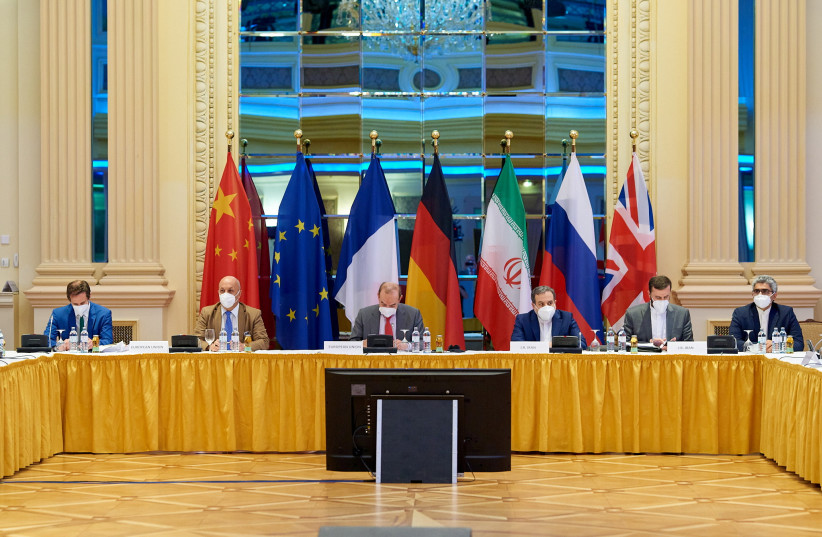WASHINGTON – At this point in nuclear negotiations with Iran, it is unclear whether both sides will be able to get across the finish line, State Department spokesperson Ned Price said on Monday.
“We’ve spoken to the significant progress that had been achieved in recent weeks,” Price said. “Obviously, we’ve been in a different position now for several weeks.”
He said that the US is “preparing equally” for scenarios in which there is a mutual return to compliance with the JCPOA, and scenarios in which there is not.
“We would greatly prefer the former: to have the JCPOA and the verifiable, permanent limits that it would again impose on Iran’s nuclear program,” said Price. “Whether we are able to get there or not, that is a question for Iran.”
Asked about the Iranian president’s comments this week in which he threatened Israel, Price said that “Iran is the world’s leading state-sponsor of terrorism. Its support for terrorism threatens international security and our partners throughout the region and elsewhere. Of course, that includes Israel. This administration’s commitment to Israel’s security is sacrosanct. We have demonstrated that in a number of ways and in cooperation with our allies and regional partners including Israel. We will use every appropriate tool to confront the IRGC’s destabilizing role in the region including working closely with our partners in Israel.”

Price said that while the US is “prepared for a return to full JCPOA implementation, we are also prepared for broader diplomatic efforts to resolve issues outside of the JCPOA and this specific nuclear file.”
He noted that Deputy Secretary-General Enrique Mora of the EU’s External Action Service “continues to convey messages and is working to bring these negotiations to a successful conclusion.”
Delisting the IRGC from the Terrorist Foreign Organization list remains the only major stumbling block between the US and Iran in their mutual efforts to revive the 2015 nuclear agreement. The IRGC designation was not a part of the nuclear agreement.
“We’re not going to negotiate in public, but what we can say is that if Iran wants sanctions-lifting that goes beyond the JCPOA, they’ll need to address concerns of ours that go beyond the JCPOA,” Price said. “If they do not want to use these talks to resolve other bilateral issues, then we are confident we can very quickly reach an understanding on the JCPOA and begin to re-implement the deal itself. It is Iran that needs to make this decision. Any party, everyone who has been directly engaged in these talks, knows which side has put constructive proposals on the table, knows which side has negotiated and engaged in good faith, and knows which side has not.
“If they want to negotiate issues that fall outside the purview of the JCPOA, then we’ll do that, but they will need to negotiate those issues in good faith with reciprocity.”
